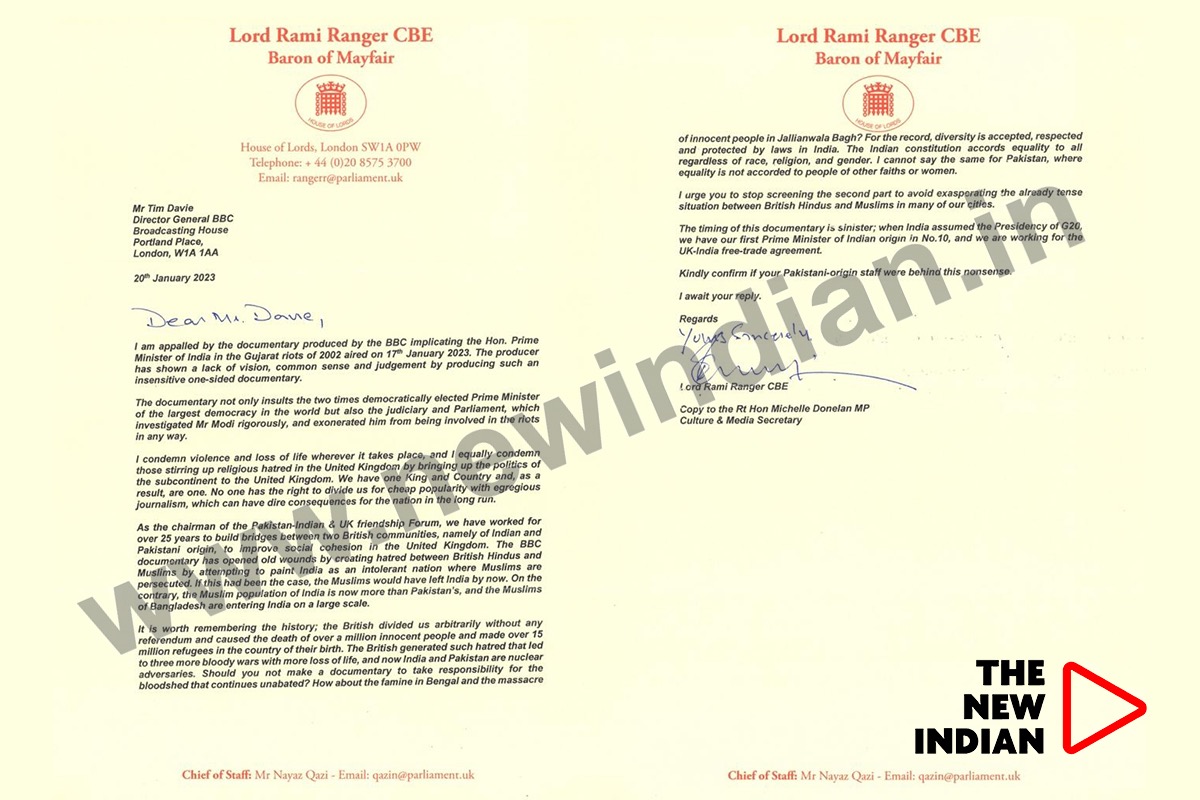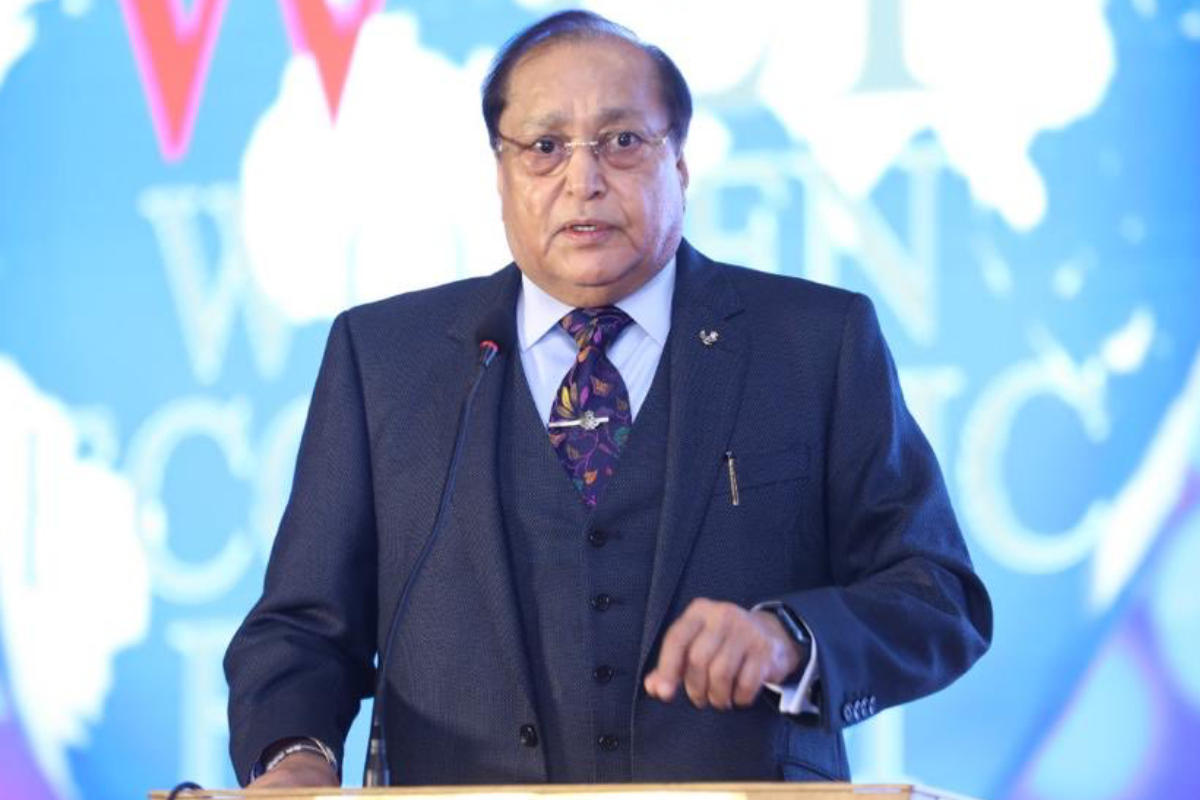Indian–origin member of the House of Lords of the United Kingdom, Lord Rami Ranger, wrote to the BBC questioning the timing of the documentary on Prime Minister Narendra Modi.
Strongly condemning the BBC documentary ‘India: The Modi Question’, which is based on the 2002 Gujarat riots, Lord Ranger said that the timing of the documentary is sinister as it came at a time when both countries are working for a free trade agreement, the UK has an Indian-origin prime minister and India has assumed the presidency of G20.
“The timing of this documentary is sinister; when India assumed the Presidency of G20, we have our first Prime Minister of Indian origin in No.10 and we are working for the UK-India free trade agreement,” he wrote in his letter to Tim Davie, director general of BBC, asking the broadcaster whether its “Pakistani-origin staff were behind this nonsense”.

Lord Ranger also said that the documentary insults the two-time democratically elected Prime Minister, the Judiciary and also Parliament, Lord Ranger wrote, “I am appalled by the documentary.” Lord Ranger accused the producer of the document of showing a lack of vision, common sense and judgement.
“I condemn violence and loss of life wherever it takes place, and I equally condemn those stirring up religious hatred in the United Kingdom by bringing up the politics of the subcontinent to the United Kingdom,” he wrote.
“The BBC documentary has opened old wounds by creating hatred between British Hindus and Muslims by attempting to paint India as an intolerant nation where Muslims are persecuted. If this had been the case, the Muslims would have left India by now. On the contrary, the Muslim population of India is now more than Pakistan’s…” he added.
Urging the BBC to stop screening the second part of the documentary, Rami Ranger wrote that the second part would exasperate the “already tense situation” between British Hindus and Muslims in many UK cities.










